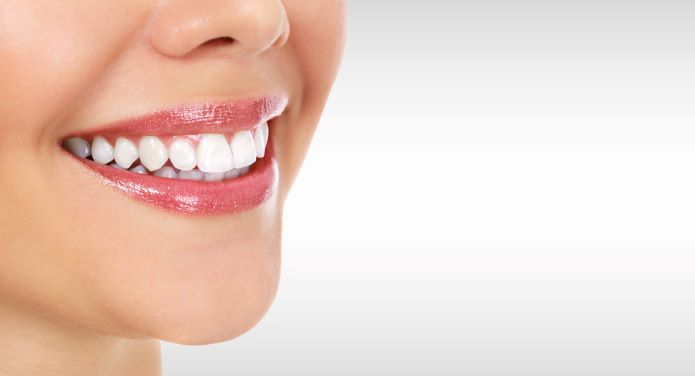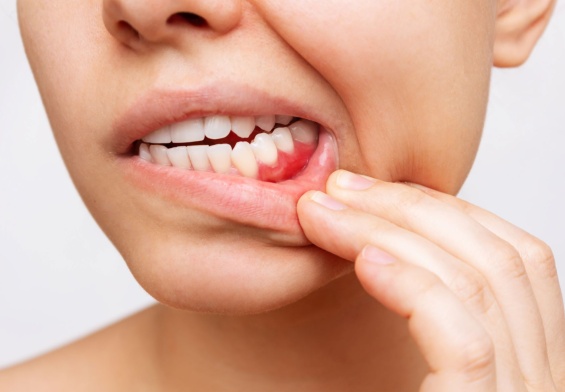Everyone wants a bright, super confident smile, but stained teeth can really put a damper on that. If you or a loved one have stained teeth, you’ll be glad to find out that addressing the root of the problem can be a big help in making your teeth brighter and whiter. In this article, we’ll explore the most common causes of stained teeth, how to deal with them, and when you should seek advice from the best cosmetic dentist in NJ for professional assistance.
Common Causes of Stained Teeth
Dietary Factors
Your diet plays a huge role in the coloration of your teeth. Certain foods and beverages like coffee, tea, and red wine are notorious for staining teeth because they have chromogens in them. Chromogens are deeply pigmented molecules that stick to your teeth’s enamel very easily, so they cause noticeable stains over time. Additionally, overly acidic and sugary foods weaken your enamel, making it easier to discolor.
Eat less of these stain-causing foods and drinks to reduce the stains on your teeth. If you are consuming a drink with a lot of chromogens, use a straw. This reduces the amount of contact the beverage makes with your teeth, and you should consider rinsing your mouth with water to reduce staining as well.
Smoking and Tobacco Use
According to the Centers for Disease Control and Prevention, smoking is a leading cause of periodontal (gum) disease, which makes stains on your teeth and overall dental health issues worse. Even outside of diseases like this, numerous ingredients and compounds found in cigarettes and tobacco products, like nicotine and tar, cause yellow and brown stains on the teeth. Smoking also carries tons of other oral health risks, like tooth loss, and many types of cancer, all of which can affect your oral health and appearance.
As a result, you can reduce the risk of stains and improve your oral health significantly by quitting smoking and using tobacco products. This can be quite difficult, but there are numerous resources available to help you quit, including counseling, nicotine replacement therapies, and medications.
Poor Oral Hygiene
If you’re not brushing/flossing properly, you’re likely building up plaque, which traps stain-causing substances and keeps them on the surface of your teeth. Brush your teeth twice a day and floss once a day to get rid of plaque and food particles that cause tooth staining. You also need to visit your dentist regularly for cleanings and dental checkups, since their cleanings are much more thorough than what you can do at home.
You can also reduce surface stains by using a whitening toothpaste. These toothpastes mild abrasives and chemicals in them that polish the teeth and can help remove minor discolorations with consistent use. Just make sure not to overuse them, which can damage your teeth.
Medications
Certain medications can stain your teeth as a side effect. When this happens, it usually happens to the structure of the tooth instead of just on the tooth’s surface, so it becomes much more difficult to fix with products you have access to. Antibiotics like tetracycline can cause tooth staining if children take it before their teeth are fully developed. Some antihistamines, antipsychotics, and antihypertensive medications can discolor teeth as well.
If you think a medication is affecting your tooth color, bring it up with your healthcare provider so you discuss alternative treatment options. It might not always be possible to switch medications, but there are cosmetic treatments available to help deal with the intrinsic stains.
How to Mitigate and Prevent Stained Teeth
Make Dietary Adjustments
Eating less stain-causing foods and drinks is a great way to mitigate and prevent tooth staining. When you drink dark, chromogen filled beverages like coffee, tea, or wine, try to drink them quickly to minimize their exposure to your teeth. Drinking more water can also help wash away food particles and reduce tooth staining.
Use Whitening Toothpaste and Products
There’s a lot of whitening toothpaste and mouth rinses on the market that help reduce minor surface stains. They tend to contain mild abrasives or peroxide to help lighten teeth gradually. Make sure to use them properly and not overuse them, since they can erode your enamel if used excessively. If the discoloration is too significant, speak with the best cosmetic dentist in NJ to explore stronger and longer-lasting whitening options.
Professional Whitening Treatments
If your stains are too persistent and don’t respond to at-home methods, professional whitening treatments can be highly effective. Cosmetic dentists offer numerous whitening options, including in-office bleaching, take-home whitening kits, and laser treatments. These methods tend to be safer and more effective than over-the-counter products, since the dentist will tailor them to your specific dental case.
When to See a Cosmetic Dentist
It’s time to consult the best cosmetic dentist in NJ if you aren’t getting the results you want from your at-home efforts. Persistent stains, especially when they’re caused by intrinsic factors or certain medications, often require professional treatment. Cosmetic dentists can offer customized treatment plans, including teeth whitening, veneers, or other restorative options that boost the appearance and health of your teeth.
Customized Treatment Plans
Each case of stained teeth is unique, and the best cosmetic dentist in NJ can tailor a treatment plan to your unique needs. Whether it’s through professional whitening, veneers, or other cosmetic procedures, a personalized approach will give you the best results for your smile.
Understanding How to Prevent Stained Teeth
Understanding what causes stained teeth and how you can prevent them will give you a healthier, brighter smile. From improving your oral hygiene routine to consulting with the best cosmetic dentist in NJ for professional treatments, there are numerous ways to manage and prevent stained teeth. Remember, a beautiful smile starts with good habits and professional care.




